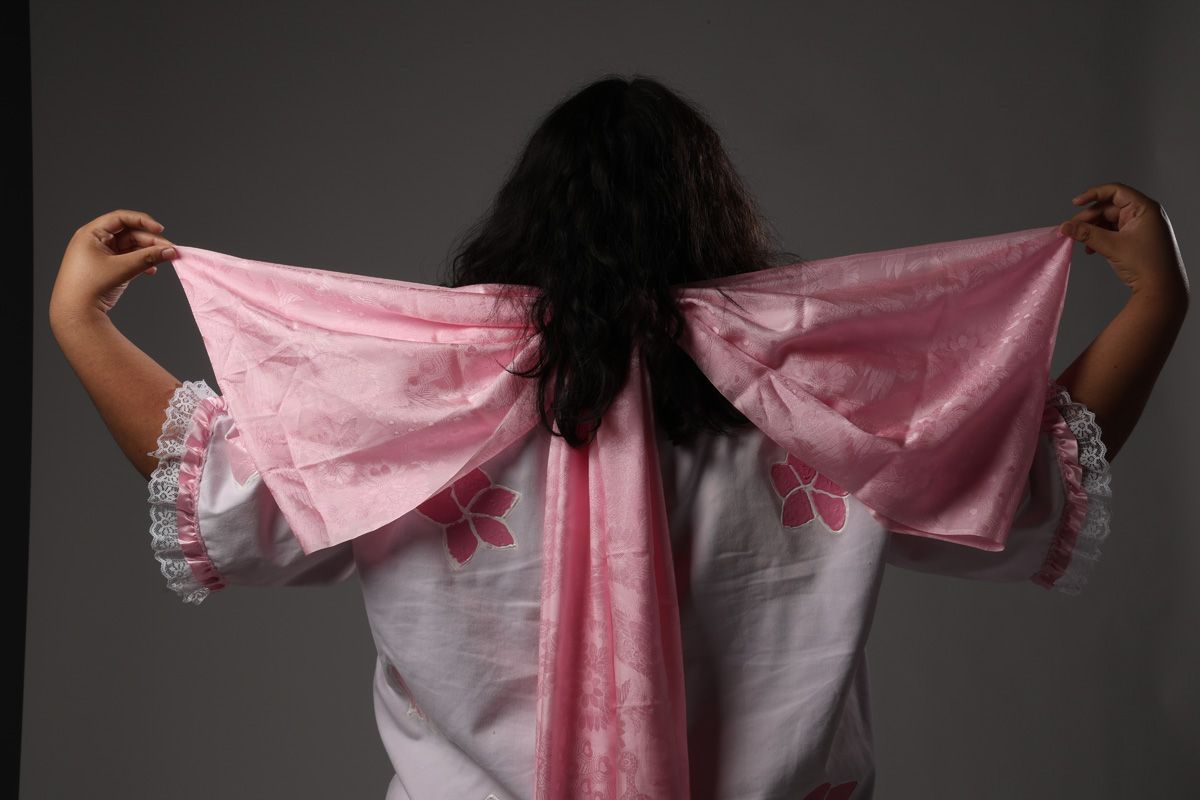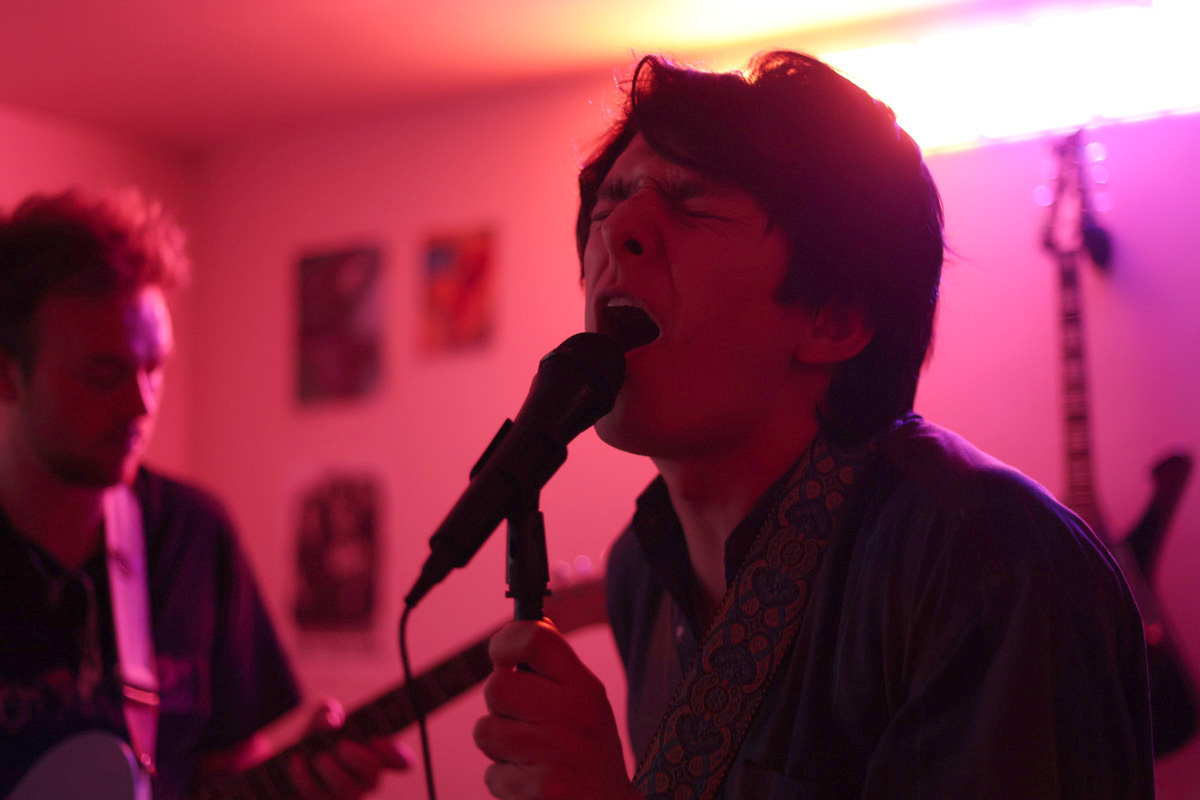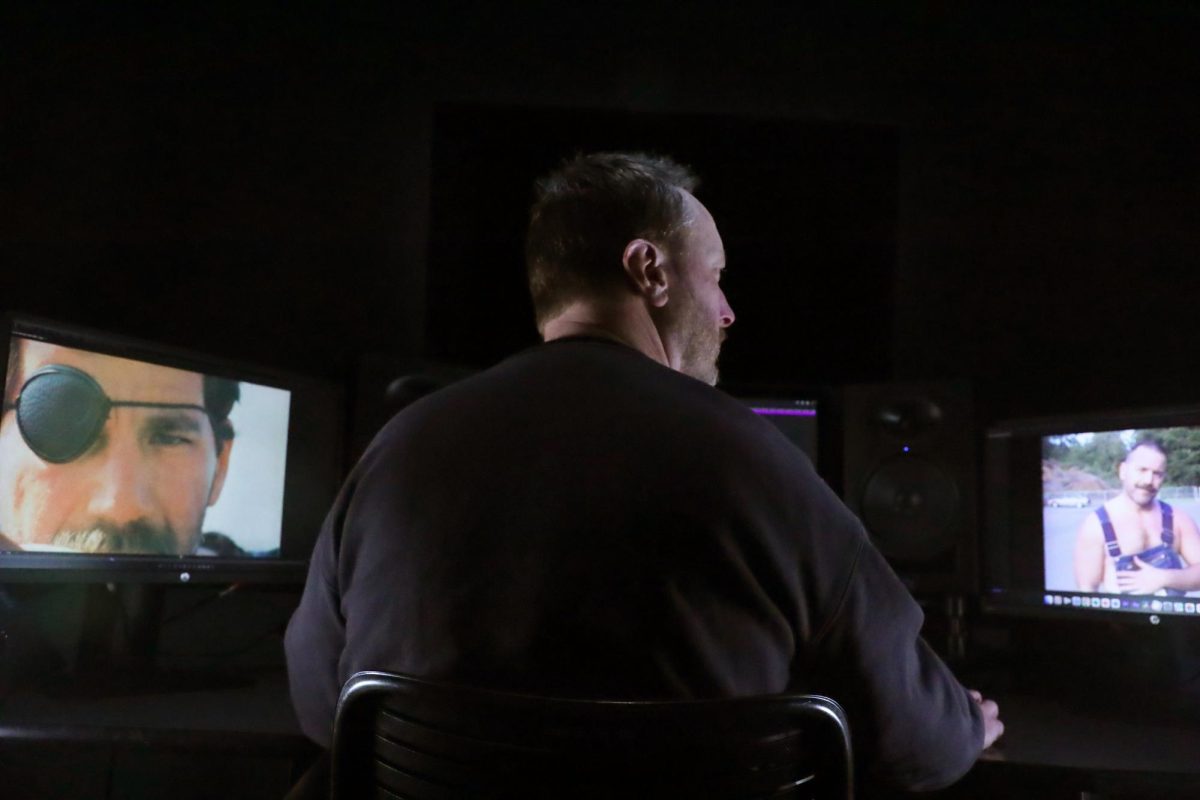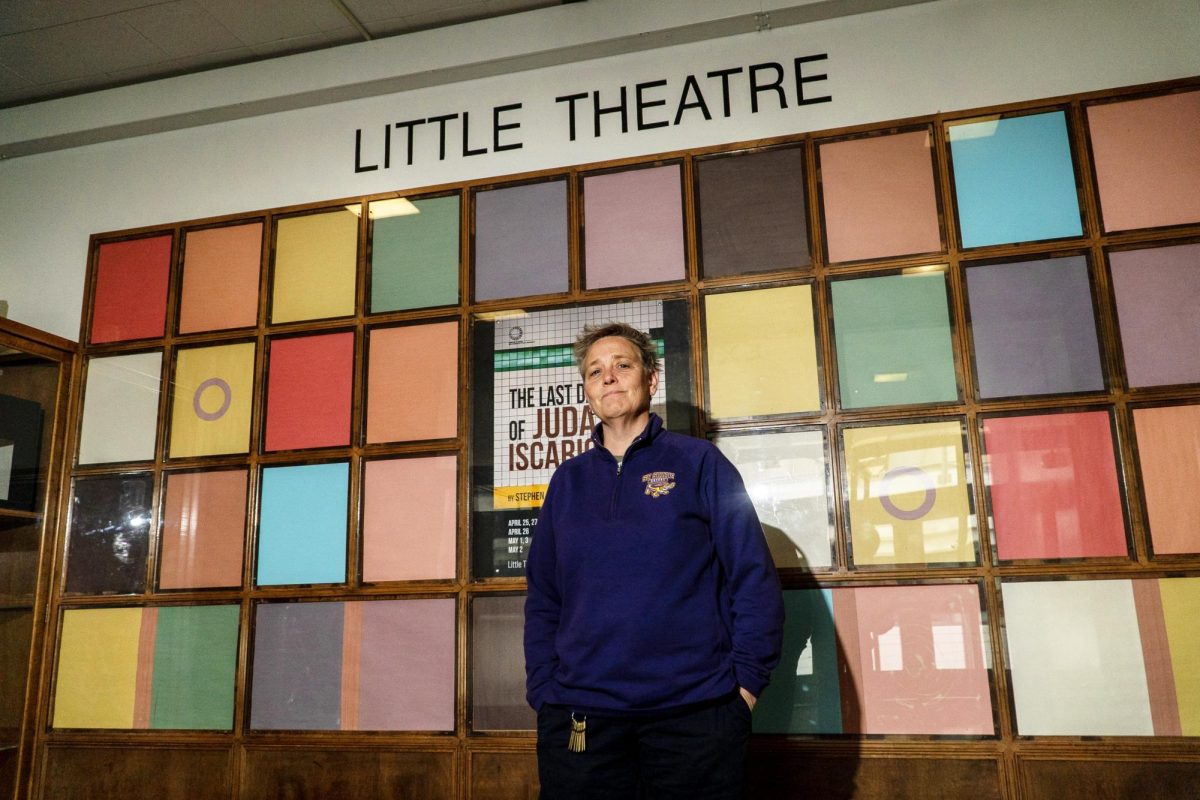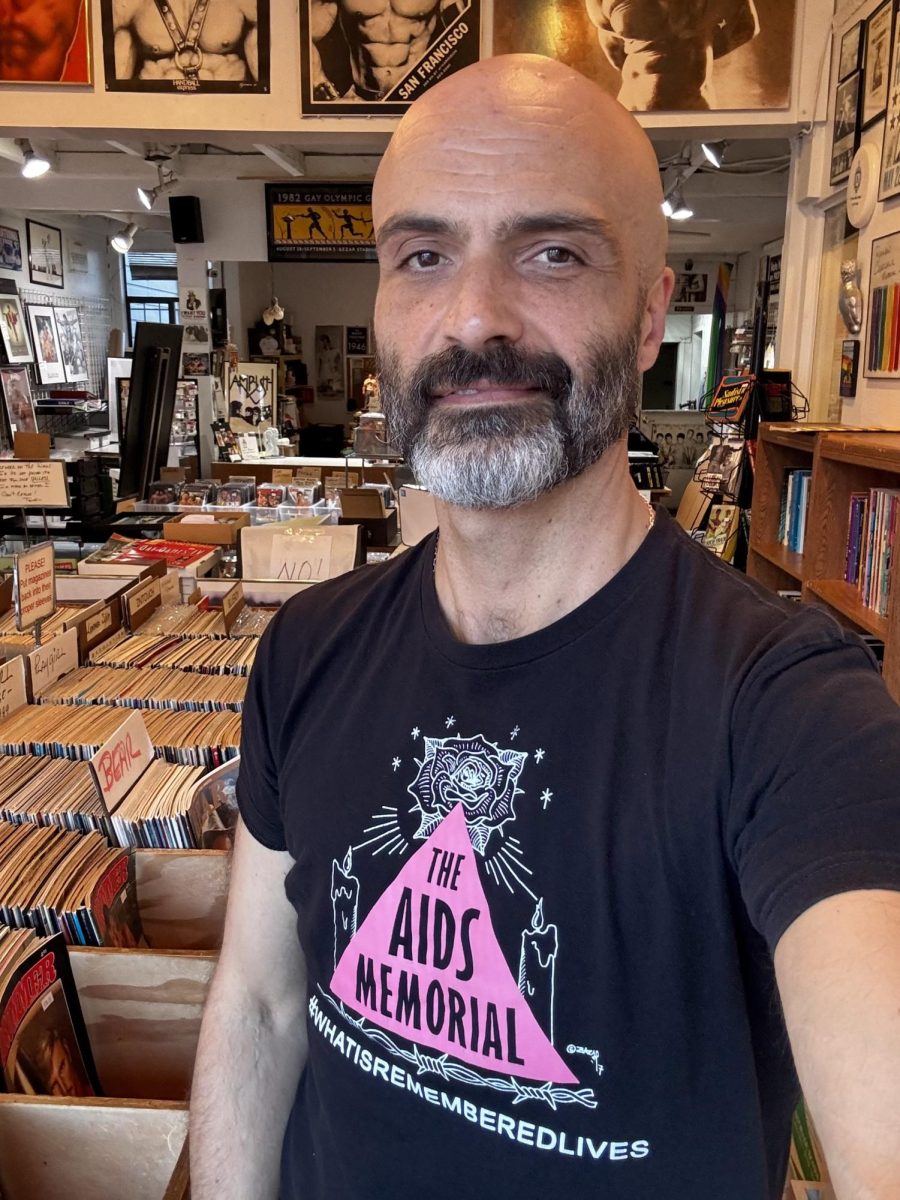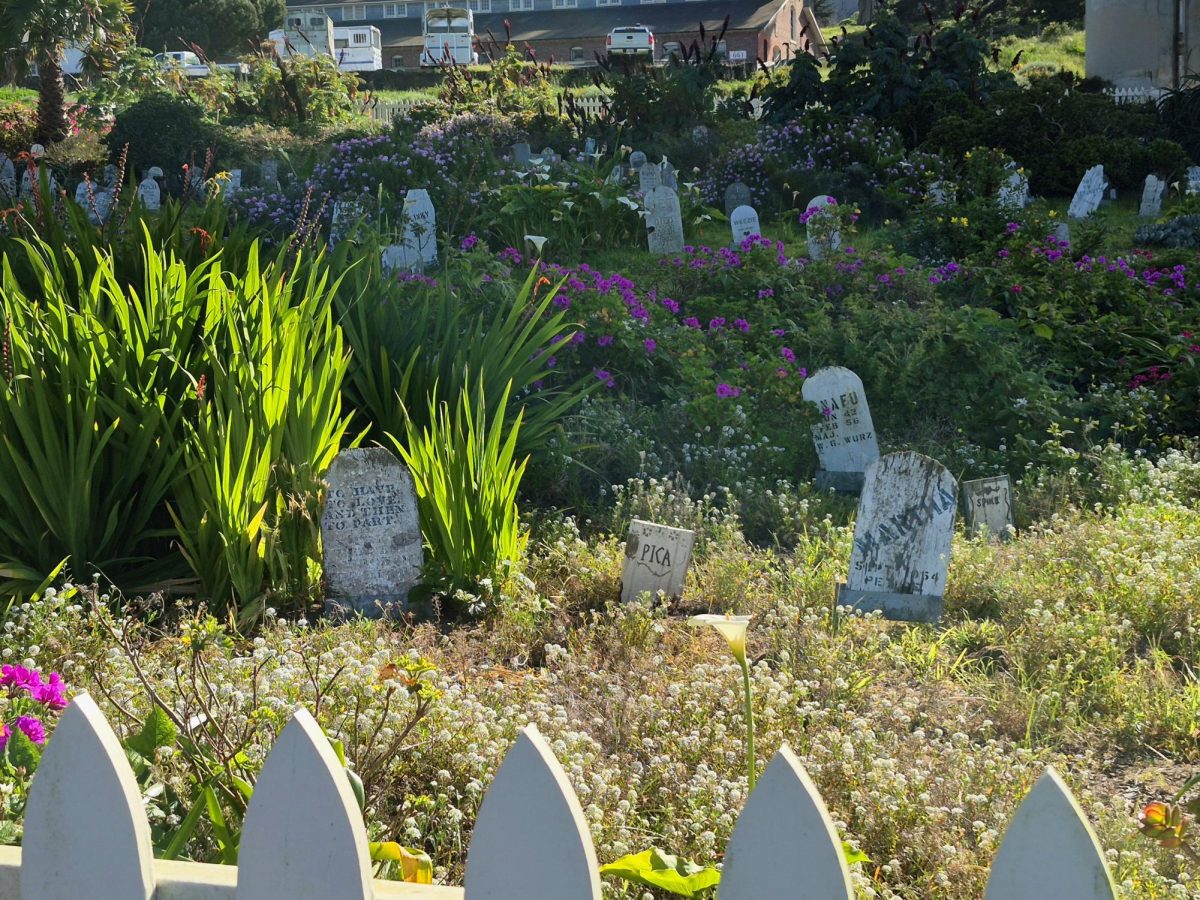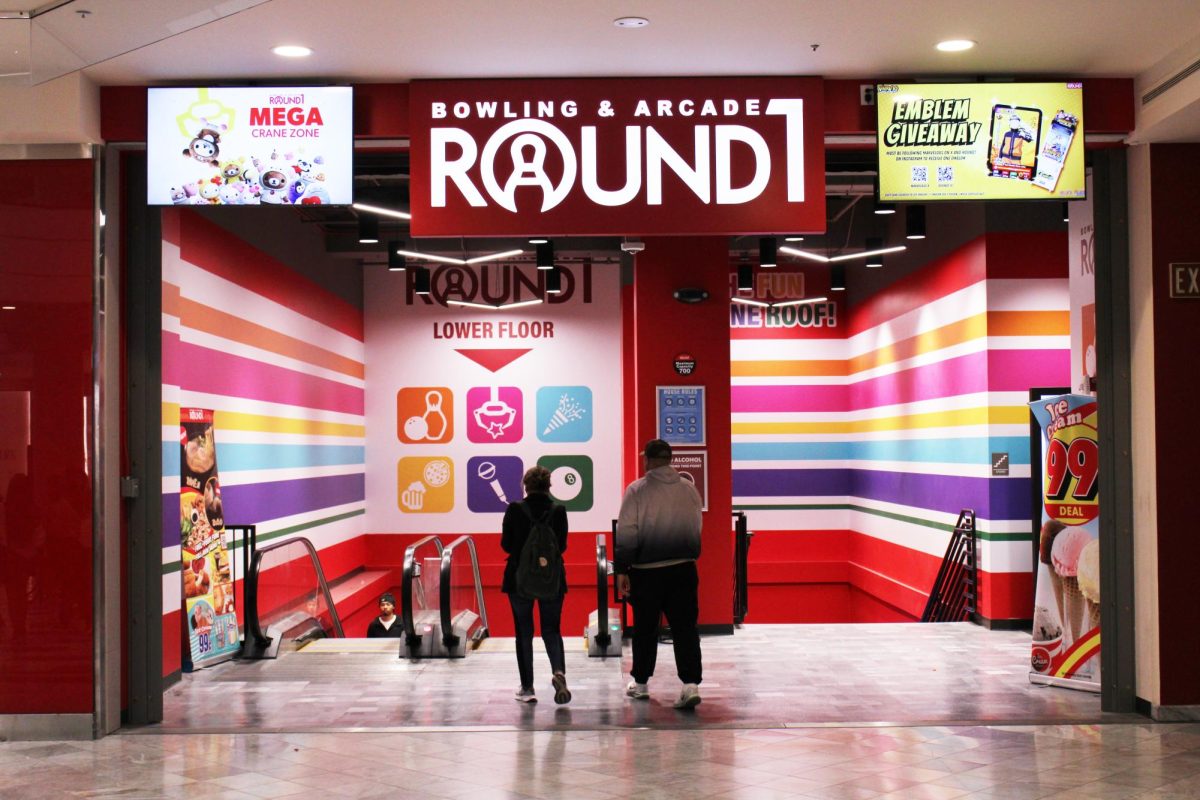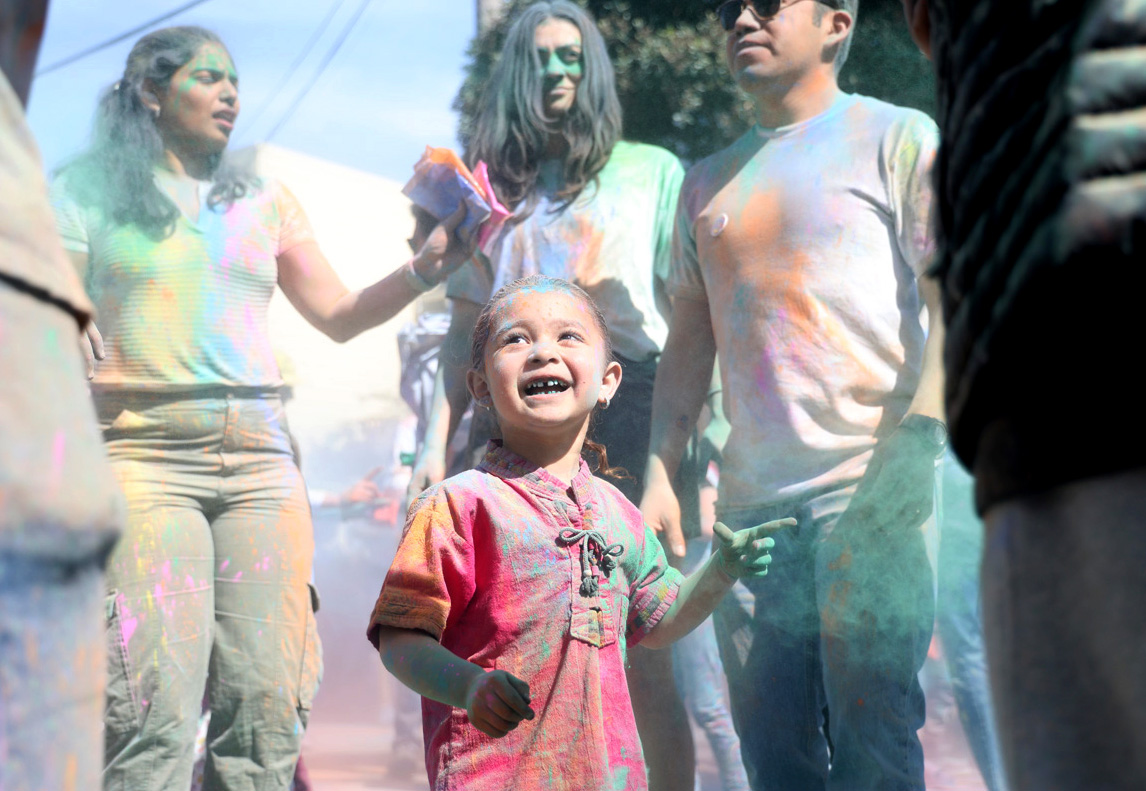
The sidewalks surrounding the corner of 29th and Broadway in Oakland are packed with curious passersby peeping in through large floor-length windows. They peek into a cat’s paradise: scratch pads, various cat trees, teaser cat toys, and shiny frill ball toys are laid out around the room. Nine friendly cats of differing breeds and ages are spread out in the cat zone; one receiving belly rubs from a child as it’s stretched out on a lounge chair, another sits on a man’s lap. Smiles radiate from all but one person during the grand opening of America’s first cat café. She stands in the middle of the room overwhelmed by emotions. As tears begin to roll down her cheeks, she whispers to Cat Man Adam Myatt and says, “It makes me so sad that they don’t have a home.”
Upon entering Cat Town Café and Adoption Center, it looks like your average corner coffee shop. Dark-roast coffee is dripping at the counter with a wide array of cat-shaped cookies to accompany them. Cat postcards and cat pillows are available to purchase and watercolor cat portraits by artist Megan Lynn Knott decorate the walls. Through a set of double doors, the space transforms into a cat lover’s dream where you can hug, pet, and talk to fuzzy feline friends. The themed café, which opened its doors on October 25th, was created to free up some space at the already busy Oakland shelter and aid in helping find displaced cats a home.
The cat café trend, made popular in Japan since the early 2000s, is catered to urban dwellers that may not have the ability to have their own animal at their homes. Instead, they attend these cafés to escape from their busy metropolitan lifestyle and lounge in a welcoming space with free-roaming cats.
KitTea, San Francisco’s very own version of a cat café is soon set to open in Hayes Valley. The idea for the café was thought up when Courtney Hatt, a tech startup worker, found herself stressed and uncomfortable in a busy café. During that visit, she encountered an article about Japan’s cat cafés and thought the therapeutic oasis would be a perfect addition to San Francisco culture.
KitTea will be an onsite adoption center for about ten friendly cats at a time, as well as a zen tea house with sustainable teas from a partnered Japanese Farm. Hatt describes the cafe as a “cat friendly spa.”
Hatt recalls her own experience with an unintended session of animal therapy. Lying down with her chest so tight that she could hardly breathe; she was having a panic attack. Almost instantly, like a radar was sent to her cat, it hopped up on her chest at the exact moment of struggle. Listening and concentrating to the cat’s steady purr led her back to a healthy breath and moment of relaxation. She believes in the beneficial properties that can come from cat interaction. “A purr and/or clear appreciation of touch, gives me a sense of peace and love from deep within,” says Hatt.
Daniel “DQ” Quagliozzi, cat behaviorist, contacted KitTea, upon hearing of their launch, to provide insight on creating a social atmosphere for cats and humans. Quagliozzi believes that KitTea will be a valuable community resource due to the stress and anxiety that humans can get caught up in.
“Cats help us slow down and live in the moment, because that’s what they do,” says Quagliozzi about their ability to help us de-stress. “The human and animal bond alone is a very powerful thing,” he expresses.
The first contemporary setting of animal assisted therapy occurred in the early 1960s, when a child psychologist discovered the benefits of animal interaction by pure accident. Boris Levinson, considered the founder of animal assisted therapy, would bring his dog Jingles into therapy sessions with a disturbed uncommunicative child. Having the dog in session, allowed for the child’s defenses to soften, which, in turn, allowed Levinson to initiate therapy. Upon the breakthrough, Levinson began to do extensive research on the subject and coined the term animal therapy in 1964.
Now, animal therapy is used worldwide to treat various mental health issues including: stress, anxiety, grief, loneliness, depression, and post-traumatic stress disorder (PTSD), according to Christine Morley, health educator at SF State. For the last couple months, she has been working with the San Francisco SPCA and Therapy Dogs International to bring therapy dogs to campus on frequent basis.
“Students experience stress all semester long. I thought it would be a really great service to have them come more often because you have stress from the first day of classes until the end of classes,” says Morley.
The sessions are offered as an effort to promote overall wellness on campus including proper sleep and stress relief. Anywhere from two to four dogs and their owners will come to campus for an hour-long session. The sessions are typically held in the garden area on top of the Student Health Center on the SF State campus. Any student can walk up to hug, pet, and cuddle with the dogs for as long as they please.
On a recent Tuesday, Shelley Fineman brought her longhaired German Shepherd Maggie for a campus visit. The event attracted seventy-one students and campus staff, providing them with a stress-free break away from exams, research papers, and classes. Maggie, a retired search and rescue dog, was dressed with a red handkerchief around her neck and a yellow triangle-shaped tag that read “I am a therapy dog” for easy identification. Students smiled and giggled as they encountered the energetic pup. A student ran up saying “I’ve been waiting for this my whole life” as she bent down to hug Maggie.
Although not enough research on animal therapy has been done to determine a direct correlation between an increase in mental health and the interaction with animals, various studies show that it will decrease stress hormones like cortisol and adrenaline. The contact with animals will also increase healthy hormones like oxytocin, dopamine, and endorphins that promote happiness.
“Being in the presence of a dog can be calming. You’re body comes to a neutral state of calmness and less stress,” says Morley. She believes the recent recognition of bringing therapy animals to college campuses is due to realizing something has to be done about how stressed college students can get.
The simple act of petting an animal can elicit a relaxation response that can lower blood pressure and anxiety, according to Morley. Cat cafés or visits with therapy dogs are being used as ways to decrease stress. “It’s an easy way to go and get your cat-snuggle fix in and not worry about anything,” she says about the cafés.
Like Hatt, Quagliozzi is intrigued about the benefits of animal interaction and hopes to see cafés of its kind everywhere.
KitTea anticipates an end of the year opening in San Francisco and other cities across America hope to follow suit. Meow Parlour in New York has a tentative December 15th opening date and The Cat Café in San Diego is working on their space.
The ever-expanding cat culture in America has helped promote the openings of the cafés, but perhaps it’s the free therapy that will keep them around.
[widgetkit id=9579]


